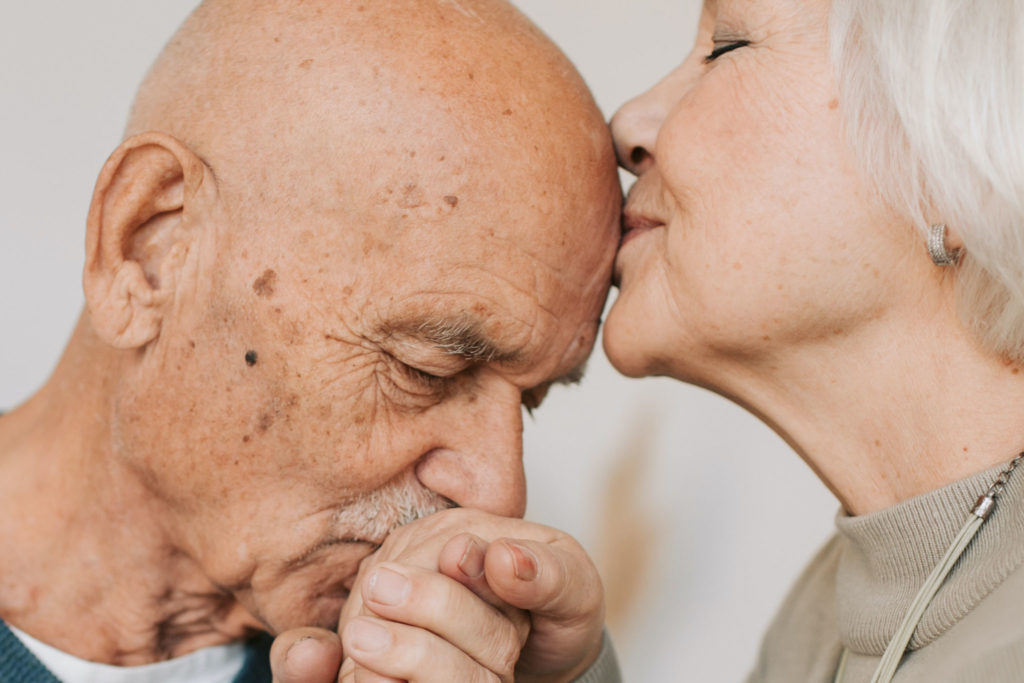The circle of life can bring an unanticipated irony to adult children: Once dependent upon their parents to meet their basic needs and development, these adults find their roles have been flipped.
Their parents are aging—struggling to keep up with their activities of daily living, not remembering to pay their bills, unable to grocery shop and prepare nutritious meals or safely operate appliances.
The changes are slow and subtle, but become more apparent over time. These adult children are stepping in, becoming caregivers to their parents.
Unpaid caregivers are also those who are taking care of a spouse or significant other. The average age of a family caregiver is 49, but almost 10% are seniors themselves.
They are our country’s quiet heroes. And they are suffering.
Does this describe you or someone in your family? Statistically, it probably does.
AARP and the National Alliance for Caregiving reports that more than 1 in 5 adults, or 53 million American adults, are unpaid family caregivers.
In addition to watching someone they love deteriorate, these caregivers are dealing with the stress of their careers, raising their own families, and providing the necessary around the clock care their loved one requires. It takes a toll both emotionally and physically. Rough statistics show that 30% of caregivers die before those they are caring for.
If they weren’t at a breaking point before, COVID-19 made it worse.
Studies Prove It
The U.S. Centers for Disease Control and Prevention recently released a study on the mental health of unpaid caregivers during the pandemic. Depression, anxiety and suicidal thoughts were some of the symptoms reported by two-thirds of the survey respondents who identified as unpaid caregivers.
Forty percent of the caregiver respondents reported having passive suicidal thoughts, and 30% seriously considered taking their own life.
The pandemic added to what was already a stressful situation. Support services such as adult day care and physical therapy were forced to close down. Social gatherings were too dangerous to consider. Parents worked from home, children learned remotely and aging parents had no place else to go. The change in routine combined with the stress of the unknown took its toll on unpaid caregivers.
Unpaid Caregivers Need Support
Caregivers have one of the most important jobs in the world, and their mental health should not be overshadowed by those they take care of. Families and health systems tend to focus on the care of the patients, not the needs of the caregiver. That needs to change.
The study showed that caregiver support can go a long way. Survey respondents who had others to rely on to help with caregiving had a lower incidence of mental health symptoms than those who did not.
Caregiver Support for Health Care Needs
If you are an unpaid caregiver of an older family member, making decisions about their health can be one of your most stressful responsibilities—especially if the patient can’t make his/her own decisions and you aren’t sure where to start.
If that’s the case, a patient advocate can lighten your load and reduce your stress. A patient advocate can evaluate your situation, explain your options, and decipher complex medical terminology. A patient advocate is your partner offering comfort and peace of mind to a difficult situation.
Local Resources for Caregiver Support
We appreciate you and the important job you are doing, but you don’t have to do it alone. You have a community of supporters rallying behind you, waiting to help with the biggest challenge of your life.
Please take the time to read, bookmark and revisit some of the following local resources available to help you:
- The Central Ohio Area Agency on Aging has a page of their website dedicated specifically to caregivers. Tips, community resources and support groups are just a few valuable resources available on the website. Additionally, their Guides and Publications page offers 10 free resource guides you can order or download that cover a variety of information on important topics for caregivers.
- SourcePoint offers support programs, workshops, support groups and in-person and virtual training classes to help caregivers find the resources they need to make life easier. Their Services Directory is a free, 234-page resource that focuses on aging-related services most often used by adults over the age of 55.
- OhioHealth has a support services and programs for caregivers, including cancer care services. Visit their caregiver support page.
- AARP provides a caregivers hotline, and a comprehensive listing of health resources, home and community based resources, financial, legal, housing and transportation resources and much more. Bookmark their Caregiver Resources for Ohio page for your reference.
- The Franklin County Board of Commissioners Office on Aging has a Caregiver Support Program that includes adult day services, caregiver counseling, durable medical equipment, incontinent supplies, kinship support services and respite services.
If you or someone you know is an unpaid caregiver, Guided Patient Services is always here to help. Whether you could use assistance with the health care portion or want to talk through the other resources available, we will do everything we can to support you.
You don’t have to suffer in silence. Let us help.

